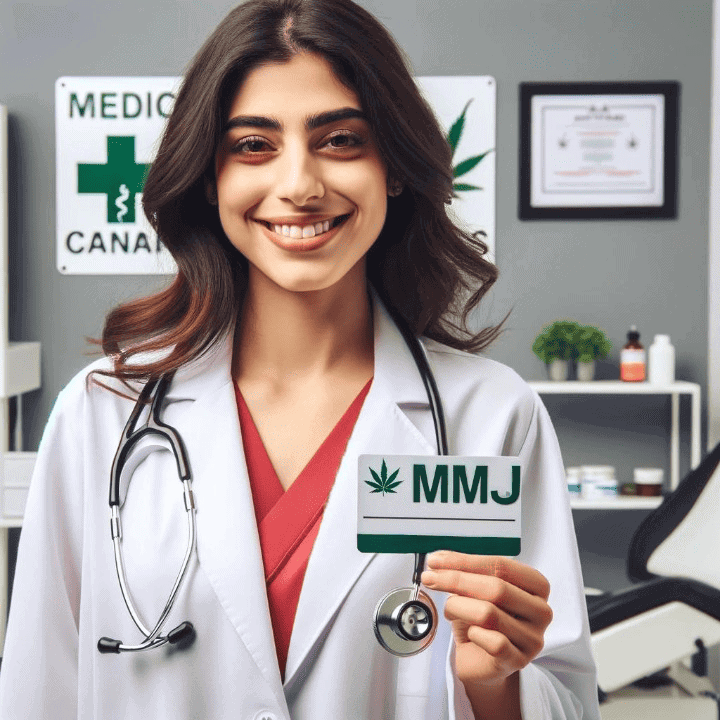News and Legal Updates on Medical Marijuana in New York
In October 2023, New York authorized home cultivation for medical marijuana, marking a major step in cannabis policy. This change enhances patient access and reflects growing public support for progressive cannabis laws, reshaping New York’s medical marijuana landscape.
Medical Marijuana in New York

In a landmark move, New York’s medical marijuana landscape witnessed a significant shift in October 2023 with the legalization of home cultivation for registered patients and caregivers. This pivotal update, part of a series of progressive changes in the state’s cannabis policy, underscores New York’s commitment to enhancing patient access and autonomy.
The decision, reflecting a broader trend towards embracing the therapeutic potential of cannabis, is expected to profoundly impact the state’s medical marijuana program. It not only offers patients more control over their treatment options but also aligns with the growing public support for more liberal cannabis policies.
This change, coupled with ongoing legal and regulatory adjustments, marks a transformative era in New York’s approach to medical marijuana, reshaping its legal, social, and economic landscape. Stakeholders, patients, and advocates are now navigating an evolving scenario where legal advancements and public opinion are dynamically interacting to redefine the state’s cannabis framework.
What Are the Latest Legal Updates on Medical Marijuana in New York?
In a significant development for New York’s cannabis industry, the New York Supreme Court recently lifted an injunction that had been halting most adult-use marijuana licensing in the state since August 7, 2022. This legal challenge, initially brought forth by four military veterans, was centered around the state’s social equity policy.
The veterans claimed they were unlawfully excluded from the process. With the lawsuit now officially settled, the path is clear for several hundred applicants for Conditional Adult-Use Recreational Dispensary (CAURD) licenses to proceed with their applications. This includes the four military veterans, who will now be granted permits.
Furthermore, the settlement resolves a separate lawsuit involving Multistate Operators (MSOs) who had entered New York’s cannabis market by acquiring existing medical marijuana business permits. Notable MSOs like Acreage Holdings, Curaleaf Holdings, Green Thumb Industries, and PharmaCann are part of this group.
Chris Alexander, the executive director of the state’s Office of Cannabis Management, expressed relief for entrepreneurs who had been in limbo and highlighted the unique approach of New York, where those harmed by prohibition, including nonprofits serving formerly incarcerated individuals, are foundational to the cannabis industry.
This legal update signifies a major step forward in New York’s cannabis market, particularly in the realm of adult-use marijuana. It underscores the state’s commitment to addressing past harms of prohibition and fostering a diverse and inclusive industry.
The recreational marijuana market in New York, legalized in March 2021, saw its first legal adult-use retailer open in December 2022, operated by New York City nonprofit Housing Works. This progress in the legal framework is expected to accelerate the opening of more stores and expand the market, benefiting communities and entrepreneurs alike.
What Recent Legal Changes Have Been Made to Medical Marijuana Policies in New York?
New York’s medical marijuana policies have undergone significant transformations recently, reflecting the state’s evolving stance on cannabis use and regulation. These changes not only impact the medical marijuana landscape but also intertwine with broader social and legal contexts.
Expansion of Medical Marijuana Access
One of the most notable changes is the expansion of medical marijuana access. This move aligns with a growing trend across the United States to make medical cannabis more accessible to patients who need it. The expansion includes increasing the number of qualifying conditions and easing some of the restrictions that previously limited patient access to medical marijuana.
Introduction of Home Cultivation
A groundbreaking development in New York’s medical marijuana policy is the legalization of home cultivation for registered patients and caregivers. As of October 2023, individuals aged 21 or older who are registered with the Medical Cannabis Program are permitted to cultivate cannabis at home for personal medical use. This change is significant as it grants patients more control over their treatment, potentially reducing costs and increasing accessibility to quality cannabis products.
Legalization of Recreational Marijuana
While not directly a medical marijuana policy, the legalization of recreational marijuana in New York has had a ripple effect on the medical cannabis landscape. Legalizing recreational use has broadened the discussion around cannabis, leading to a more open and accepting attitude towards its medical use. It has also spurred the development of a more robust and regulated cannabis market in the state.
Streamlining of Licensing Processes
The legal settlement that resolved the injunction on adult-use marijuana licensing has implications for the medical marijuana sector as well. By streamlining the licensing process, the state has opened doors for more dispensaries and cultivators to enter the market, potentially leading to better product availability and variety for medical marijuana patients.
Focus on Social Equity
New York’s approach to updating its cannabis policies includes a strong focus on social equity. The state aims to rectify the harms caused by previous marijuana prohibitions by ensuring that those affected by past policies have opportunities in the emerging cannabis market. This focus is evident in the state’s efforts to include nonprofits and community organizations in the cannabis industry.
Implications for Patients and Providers
These legal changes have significant implications for both patients and providers. Patients now have more options and potentially easier access to medical marijuana. Providers, including dispensaries and healthcare professionals, must adapt to the evolving regulatory landscape, ensuring compliance while meeting the needs of their patients.
For more detailed information on New York’s medical marijuana policies and the latest legal updates, visiting the New York State Department of Health’s Medical Marijuana Program page is recommended. This resource offers comprehensive guidance and updates on the medical marijuana program in New York State.

How Do Legal Updates Impact Medical Marijuana Recommendations in New York?
The evolving legal landscape of medical marijuana in New York significantly influences the recommendations and prescriptions provided by medical marijuana doctors in New York. These changes not only affect the legal framework within which medical marijuana operates but also shape the clinical practices surrounding its use.
Expansion of Qualifying Conditions
One of the most direct impacts of legal updates is the expansion of qualifying conditions for medical marijuana use. As the state recognizes a broader range of medical issues that can benefit from cannabis treatment, healthcare providers now have more latitude in recommending medical marijuana. Conditions such as chronic pain, PTSD, and various neurological disorders have been added over time, allowing more patients to legally access cannabis for their health needs.
Introduction of Home Cultivation
The legalization of home cultivation for registered patients and caregivers, effective from October 2023, has introduced a new dimension to medical marijuana recommendations. Healthcare providers might now consider a patient’s ability and preference to cultivate their own cannabis as part of their treatment plan. This option can be particularly beneficial for patients who require specific strains or who find commercially available products cost-prohibitive.
Impact on Dosage and Administration Guidelines
Legal changes also influence the guidelines for dosage and administration of medical marijuana. With the introduction of new cannabis products and forms in the market, healthcare providers must stay informed about the efficacy, potency, and appropriate use of these options. This is crucial for tailoring treatment plans to individual patient needs while ensuring safety and compliance with state regulations.
Enhanced Patient-Provider Discussions
The evolving legal status of medical marijuana encourages more open and informed discussions between patients and healthcare providers. As the stigma around cannabis use diminishes and its therapeutic benefits become more recognized, providers are more likely to consider and discuss medical marijuana as a viable treatment option.
Compliance with Regulatory Changes
Healthcare providers must also navigate the regulatory changes accompanying legal updates. This includes understanding the legal implications of recommending medical marijuana, staying updated on state guidelines, and ensuring that their practice complies with the latest laws and regulations.
Broader Implications for Healthcare Practice
The legal updates in New York’s medical marijuana landscape necessitate a broader understanding and adaptation within the healthcare community. Providers must consider not only the direct medical implications of cannabis use but also the legal, social, and ethical aspects of recommending it to patients.
What Is the Significance of the Latest Medical Marijuana Legislation in New York?
The Marihuana Regulation & Taxation Act (MRTA), signed into law on March 31, 2021, has been a cornerstone in reshaping New York State’s approach to cannabis. This legislation not only legalized adult-use cannabis but also created a comprehensive framework for regulating medical, adult-use, and hemp cannabis. The establishment of the Office of Cannabis Management (OCM), governed by the Cannabis Control Board, is a pivotal development in this regard.
Comprehensive Regulatory Framework
The MRTA’s introduction of a comprehensive regulatory framework is significant for several reasons. Firstly, it represents a shift towards a more regulated and safe cannabis market. By setting standards for production, manufacturing, and distribution, the state aims to ensure product safety and quality. This is particularly important for medical marijuana, where consistent product quality is crucial for effective treatment.
Focus on Social Equity
Another key aspect of the MRTA is its focus on social equity. The legislation aims to address the harms caused by previous marijuana prohibitions by ensuring opportunities in the emerging cannabis market for those affected by past policies. This approach is unique and progressive, as it integrates social justice into the fabric of the cannabis industry.
Impact on Medical Cannabis
For medical cannabis specifically, the MRTA and subsequent regulations have implications on various fronts. The expansion of eligibility for medical cannabis, the increase in the number of caregivers allowed per patient, and the allowance for prescriptions for up to 60 days are some of the notable changes. These modifications enhance patient access to medical cannabis and provide more flexibility in treatment options.
Future Directions
Looking ahead, the regulatory process in New York, as governed by the State Administrative Procedure Act (SAPA), continues to evolve. The OCM’s Legal Division administers this process, ensuring that any regulatory proposals are thoroughly vetted and open for public comment. This ongoing regulatory evolution indicates that the state’s approach to medical cannabis will continue to adapt and respond to the needs of patients and the industry.
For more detailed information on the MRTA and its impact on medical marijuana in New York, you can read the Cannabis Law and explore further details on the Office of Cannabis Management website. These resources provide comprehensive insights into the legal and regulatory landscape of medical marijuana in New York.
What Are the Major Legal Challenges and Court Cases Affecting Medical Marijuana in New York?
New York’s journey towards establishing a comprehensive medical marijuana program has been marked by several legal challenges and court cases. These legal battles have played a crucial role in shaping the state’s medical marijuana policies and regulations.
Challenges in Licensing and Market Entry
One of the significant legal challenges in New York has been related to the licensing process for medical marijuana dispensaries and cultivators. Disputes have arisen over the criteria and process for awarding licenses, with some applicants challenging the state’s decisions in court. These cases often revolve around allegations of unfair practices or non-compliance with state regulations, impacting the composition and operation of New York’s medical marijuana market.
Litigation Involving Zoning and Local Regulations
Another area of legal contention involves zoning and local regulations. Some municipalities have attempted to restrict or ban medical marijuana dispensaries within their jurisdictions, leading to legal disputes. These cases typically focus on the balance between state authority and local control, and their outcomes can significantly affect the availability of medical marijuana in certain areas.
Employment-Related Legal Issues
Employment-related legal issues have also emerged, particularly regarding the rights of medical marijuana patients in the workplace. Some cases involve employees who have faced discrimination or termination due to their status as medical marijuana patients. These legal battles are crucial in defining the extent to which medical marijuana use is protected under state employment laws.
Legal Disputes Over Home Cultivation
The legalization of home cultivation for medical marijuana patients, effective from October 2023, has opened up a new front for legal challenges. Issues related to the limits on cultivation, the rights of landlords versus tenants, and compliance with local laws are potential areas for future litigation. These cases will likely shape the practicalities of home cultivation for medical marijuana in New York.
Impact of Recreational Marijuana Legalization
The legalization of recreational marijuana in New York, while primarily affecting the adult-use market, has implications for medical marijuana as well. Legal challenges in this area may influence the regulatory environment for medical marijuana, particularly concerning product availability, taxation, and the distinction between medical and recreational use.
Ongoing Legal Evolution
The legal landscape for medical marijuana in New York is continuously evolving. Court decisions in these areas not only impact the immediate parties involved but also set precedents that can influence state policies and regulations. Staying informed about these legal developments is crucial for patients, providers, and stakeholders in the medical marijuana industry.
For the most current information on legal challenges and court cases affecting medical marijuana in New York, legal databases and resources such as FindLaw or the New York State Unified Court System can provide valuable insights and updates. These platforms offer detailed case information and analysis, helping to navigate the complex legal landscape surrounding medical marijuana in New York.

What Are the New Compliance and Regulatory Changes for Medical Marijuana in New York?
New York State has recently implemented several key compliance and regulatory changes in its medical marijuana program, reflecting the state’s evolving approach to cannabis management. These changes are designed to streamline the program, enhance patient access, and ensure product safety and quality.
Expansion of the State’s Cannabis Industry
The state has significantly expanded its cannabis industry with the approval of adult-use cannabis applications. This expansion, effective from September 12, 2023, is expected to increase the number of licensed dispensaries and marks the beginning of a more inclusive cannabis market. This development is crucial for medical marijuana as it may lead to increased product availability and variety for patients.
Regulatory Updates in Medical Cannabis
The Office of Cannabis Management (OCM) has been actively updating regulations to align with the evolving needs of the medical cannabis community. These updates include revisions to existing medical cannabis regulations, ensuring they are in sync with the latest industry standards and patient needs. The OCM’s regulatory history reflects a commitment to continuous improvement and adaptation in response to feedback from stakeholders and the public.
Focus on Patient Safety and Quality Control
A key aspect of these regulatory changes is the emphasis on patient safety and product quality. The OCM ensures that all medical cannabis products meet stringent safety standards, which is vital for patient health and treatment efficacy. This focus on quality control is a response to the growing demand for reliable and safe medical cannabis products in the state.
For detailed information on the latest regulatory changes and compliance guidelines in New York’s medical marijuana program, visiting the Office of Cannabis Management website is recommended. This official source provides comprehensive insights into the legal and regulatory landscape of medical marijuana in New York.
How Does the October 2023 Update Allowing Home Cultivation Impact Medical Marijuana Users in New York?
The October 2023 legislative update in New York, which permits home cultivation of cannabis for medical marijuana users, marks a significant shift in the state’s approach to cannabis regulation. This change is poised to have a profound impact on patients who rely on medical marijuana for their health and well-being.
Enhanced Access and Autonomy for Patients
One of the most immediate impacts of this update is the enhanced access it provides to patients. By allowing home cultivation, patients who may have faced challenges in accessing dispensaries or found the cost of medical cannabis prohibitive can now grow their own supply. This change not only makes medical marijuana more accessible but also gives patients greater autonomy over their treatment, allowing them to cultivate specific strains that best suit their medical needs.
Potential for Cost Reduction
The cost of medical marijuana can be a significant burden for many patients, especially those who require a consistent supply for chronic conditions. Home cultivation offers a more cost-effective solution, potentially reducing the financial strain on patients. By growing their own cannabis, patients can avoid the retail markup and have a steady, more affordable supply of their medication.
Quality Control and Personalization
Home cultivation enables patients to have direct control over the quality of their cannabis. They can grow organic, pesticide-free plants, ensuring that the product they consume is safe and of high quality. Additionally, patients can experiment with different cultivation methods and strains, tailoring their crop to their specific therapeutic needs.
Legal and Safety Considerations
While the update is a positive development, it also comes with legal and safety considerations. Patients must adhere to state guidelines regarding the number of plants they can grow and ensure that their cultivation practices comply with local laws. Additionally, safety concerns, such as proper storage and preventing unauthorized access, especially by minors, are paramount.
Broader Implications for the Medical Marijuana Program
The allowance of home cultivation is indicative of a broader shift towards a more patient-centric approach in New York’s medical marijuana program. It reflects an understanding of the diverse needs of medical marijuana users and a commitment to making their treatment as effective and accessible as possible.
For more information on the guidelines and legal aspects of home cultivation in New York, patients and caregivers can refer to resources provided by the New York State Department of Health and the Office of Cannabis Management. These platforms offer detailed information and updates, ensuring that individuals are well-informed about their rights and responsibilities regarding home cultivation of medical cannabis.
How Does Public Opinion Influence Legal Changes in Medical Marijuana Policies in New York?
Public opinion plays a pivotal role in shaping the legal landscape of medical marijuana in New York. As societal attitudes towards cannabis evolve, they significantly impact legislative actions and policy reforms.
Shift in Societal Attitudes
Over the years, there has been a noticeable shift in how the public perceives medical marijuana. This change is largely driven by increased awareness of the medical benefits of cannabis and a broader understanding of its therapeutic potential. Surveys and polls consistently show growing support for medical marijuana, with a substantial portion of the population advocating for its legalization and accessibility.
Impact on Legislative Decisions
This shift in public opinion in New York directly influences legislative decisions. Lawmakers, recognizing the changing attitudes of their constituents, are more inclined to support or propose legislation that aligns with public sentiment. In New York, this has led to significant legal reforms, including the expansion of qualifying conditions for medical marijuana use and the introduction of more patient-friendly policies.
Advocacy and Grassroots Movements
Grassroots movements and advocacy groups play a crucial role in channeling public opinion into actionable change. These organizations mobilize support, raise awareness, and engage in lobbying efforts to influence policymakers. Their work often brings patients’ stories and experiences to the forefront, humanizing the issue and compelling legislators to act.
Media’s Role in Shaping Opinion
The media also plays a significant role in shaping public opinion on medical marijuana. Through coverage of medical research, patient stories, and policy debates, the media helps to educate the public and influence their perceptions. Positive media coverage of medical marijuana success stories can sway public opinion, thereby putting pressure on legislators to enact changes.
Challenges in Aligning Public Opinion and Policy
Despite the growing support for medical marijuana, aligning public opinion with policy changes remains a challenge. There are often gaps between what the public wants and what is legislatively feasible. Overcoming these challenges requires continuous advocacy, education, and engagement with policymakers.
Future Outlook
As public opinion continues to evolve, it is likely to further influence the legal framework surrounding medical marijuana in New York. Ongoing research, patient advocacy, and public discourse will play key roles in shaping future policies, ensuring they reflect the needs and views of the community.
For those interested in the latest developments and public opinion trends on medical marijuana in New York, resources like Marijuana Moment and NORML provide up-to-date information and analysis. These platforms offer insights into how public opinion is influencing legal changes in medical marijuana policies, both in New York and nationwide.
Conclusion on News and Legal Updates on Medical Marijuana in New York
New York’s medical marijuana landscape has seen transformative legal changes, reflecting a shift towards more progressive cannabis policies. The legalization of home cultivation for medical patients, a key update in 2023, marks a significant step in enhancing patient autonomy and access. This, along with the expansion of the cannabis industry to include adult-use applications, signifies New York’s commitment to a more inclusive and equitable approach.
These developments underscore the state’s recognition of cannabis’s therapeutic benefits and its efforts to rectify past harms caused by marijuana prohibitions. The focus on social equity is particularly notable, aiming to provide opportunities for communities historically impacted by stringent cannabis laws.
However, the legal environment remains dynamic, with ongoing challenges in licensing, market entry, and regulatory compliance. The influence of public opinion and advocacy continues to be a driving force in shaping these policies.
As New York progresses in its approach to medical marijuana, staying informed about the latest updates is crucial for patients, providers, and industry stakeholders. Resources like the New York State Department of Health and the Office of Cannabis Management offer essential guidance, helping to navigate the evolving legal and regulatory framework of medical marijuana in the state.
Additional Resources
New York court’s move signals adult-use marijuana sales by MSOs
Summary: Multistate cannabis operators with medical marijuana licenses in New York could begin adult-use sales as soon as this month. This development follows the lifting of an injunction by the New York Supreme Court, which had paused most adult-use licensing in the state since August 7, 2022. The injunction was in response to a legal challenge to the state’s social equity policy. The settlement of this lawsuit allows several hundred applicants for Conditional Adult-Use Recreational Dispensary (CAURD) licenses to resume their application processes.
URL: Read More
New York Cannabis Business, CBD & Medical Marijuana Legal News
Summary: This resource provides ongoing updates and news about the cannabis industry in New York, including medical marijuana legal news. It’s a valuable source for staying informed about the latest developments in the state’s cannabis market.
URL: Read More
After troubled start, New York is shaking up its legal marijuana market with new competitors
Summary: New York is expanding its legal marijuana market, which has been experiencing a slow rollout of retail stores. This expansion aims to address the initial challenges and introduce new competitors into the market.
URL: Read More
Governor Hochul Highlights Plan to Aggressively Expand New York’s Legal Cannabis Market and Crack Down on Illegal Sales
Summary: Governor Kathy Hochul announced a significant expansion of New York State’s legal cannabis market. This plan includes issuing hundreds of licenses and measures to crack down on illegal sales, marking the largest expansion of the state’s legal cannabis market to date.
URL: Read More

A1 Marijuana Doctors is an online platform, that connects marijuana patients to marijuana doctors in their state.



